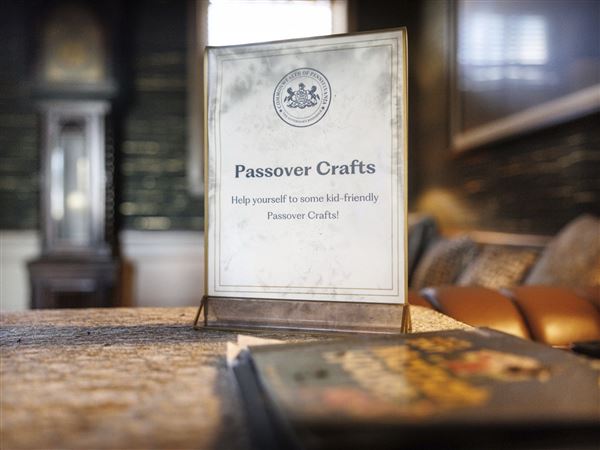Thrills-and-chills director Paul Verhoeven's "Black Book" is the most expensive Dutch film ever made and, at 144 minutes, the longest and most gripping war drama of the new millennium -- relentlessly overflowing with action, heavy-handed but never dull.

Thom Hoffman as resistance fighter Hans Akkermans and Carice van Houten as Rachel/Ellis lead double lives in "Black Book."
Click photo for larger image.
'Black Book'



 Starring: Sebastian Koch and Carice van Houten, above, and Thom Hoffman.
Starring: Sebastian Koch and Carice van Houten, above, and Thom Hoffman. Director: Paul Ver- hoeven.
Director: Paul Ver- hoeven. Rating: R for strong violence, graphic nudity, sexuality and language.
Rating: R for strong violence, graphic nudity, sexuality and language. Web site: http://www.sonyclassics.com/blackbook/
Web site: http://www.sonyclassics.com/blackbook/
It's the last desperate days of World War II, and a beautiful young Jewish singer named Rachel (Carice van Houten) is the only member of her family to escape being brutally slaughtered in a botched attempt to flee Holland. To find out who betrayed her family, she joins the Resistance and is renamed "Ellis." Her assignment: to seduce and spy on local Gestapo chief Ludwig Muntze (Sebastian Koch), a kinder, gentler sort of Nazi more interested in rare Netherlands colonial stamps than in killing Dutch Jews.
The way to this Nazi's heart is through his stamp collection, and she gradually falls in love with him -- oblivious to the dangers thereof, including deceit among her own compatriots.
The film's title refers to a secret list of Dutch collaborators kept by one of the turncoats in whom Ellis and the Resistance mistakenly place their trust. Verhoeven and his co-screenwriter Gerard Soeteman learned of it while researching their superb war story, "Soldier of Orange" (1977).
Having fermented for 30 years, the result is a properly intoxicating (and erotic) adventure with a plethora of provocative heroes and villains, dazzling action, plot twists and turns galore -- as epic as its running time suggests. Bracketed by two Israeli scenes during the Suez Crisis of 1956, it unfolds in flashback to late 1944 -- a bridge and a few agonizing months too far from liberation. A time of Anne Frank and the tragic battle of Arnhem.
But is this a "true story"?
Yes and -- mostly -- no. Ellis is a fictional composite of Anne Frank, Dora Paulsen (well-known Jewish singer in Dutch theaters), Kitty van der Have (fatally in love with a Nazi officer) and Ans van Dijk (Jewish Resistance girl suspected of betrayal). Muntze is based on a German officer who indeed traded Resistance prisoners for stamps. The man who betrays Ellis' family is prototypical of many Dutch policemen who got rich betraying Jews. An infamous dentist did, in fact, systematically assist but then rat on Jews and later escape in a coffin containing himself and their money.
"Black Book's" cancerously negative depiction of Dutch Resistance fighters overall may not be fair but is grounded in the fact that the movement was infiltrated by many pro-fascist, self-serving young Dutchmen, and that anti-Semitism was rampant even among "good" Resistance members. "If the Jews had listened to Jesus," says one in the film, "they wouldn't be in such a mess now."
But one stretch in Verhoeven's film struck me as obviously, absurdly false: a key scene toward the end -- after Germany's surrender -- in which the Allies allow captured German officers to execute other captured Germans as "traitors" to Hitler. I checked it out -- and damned if it wasn't true. Gen. Patton personally approved it. All the Nazis had to do was say the "traitors" were communists.
Make of historical verisimilitude -- or the lack of it -- what you will. This is a movie, after all, and an extremely well-acted one. Van Houten as Mata Hari is not quite Garboesque, but she's an aspiring screen goddess with a gorgeous heart-shaped face atop an erotic body -- casually exposing (or forced to expose) her perfect breasts at the drop of a slip, in half a dozen scenes. If she fails to convey the realistic outrage of her much-abused character in such situations, she deserves credit for more than holding our interest when "Black Book's" hectic plot strains credulity.
Nifty Halina Reijn as her gal-pal Ronnie is likewise wonderful, while Koch ("The Lives of Others") -- a kind of latter-day Maximilian Schell -- is excellent as the empathetic Muntze.
Hollywood loves/hates Verhoeven, considering him and his three smash hits -- "RoboCop" (1987, with its sci-fi terror), "Total Recall" (1990, with the Governator) and "Basic Instinct" (1992, with Sharon Stone) to be quasi-pornographic. But he's got his surefire formula down pat: compelling story, shocking Bonnie-&-Clyde-type violence, plus perverse "M*A*S*H" humor culminating in a repulsive fecal-based retribution sequence that must be seen to be disbelieved.
Here, he tosses every war-film convention -- suspense, betrayal, mayhem, melodrama, weary Marlene-type crooner -- into the blender to produce lurid pulpy fiction. WWII as a kind of mega-"Miami Vice" episode.
A case can be made that "Black Book" exploits Dutch/Jewish war victims by its vulgar sensationalizing. But there's no denying that this over-the-top spectacle is shamelessly entertaining -- and that philately will get you nowhere.
"Black Book" is now playing at the Manor.
First Published: May 3, 2007, 10:45 p.m.














